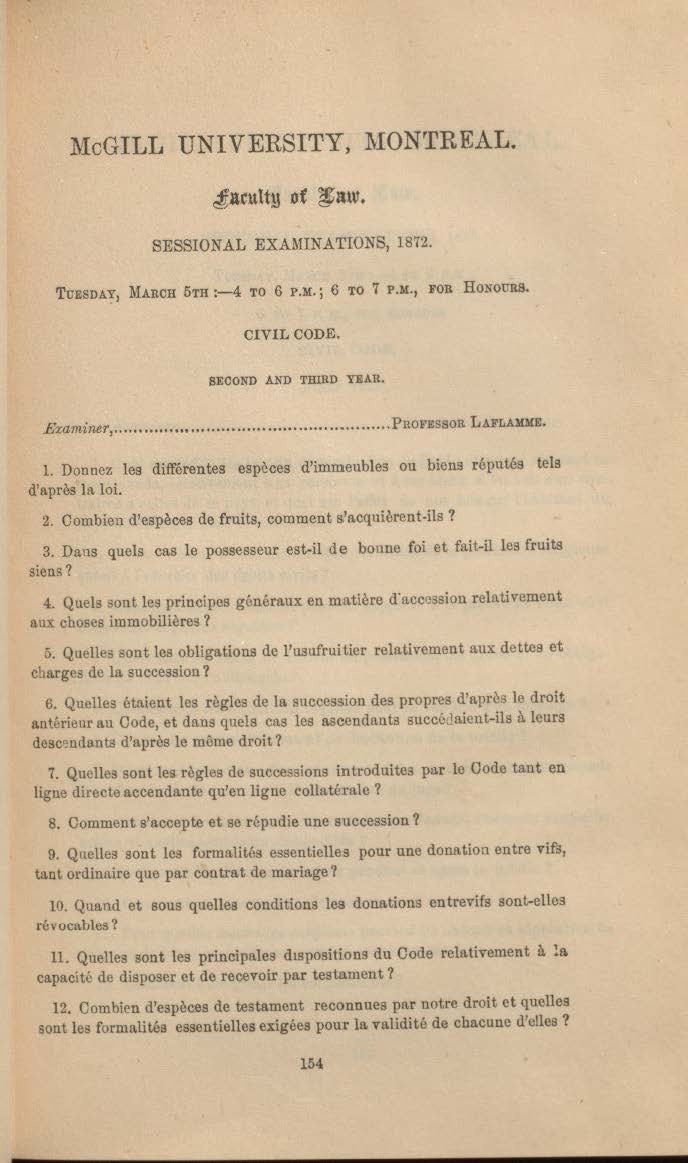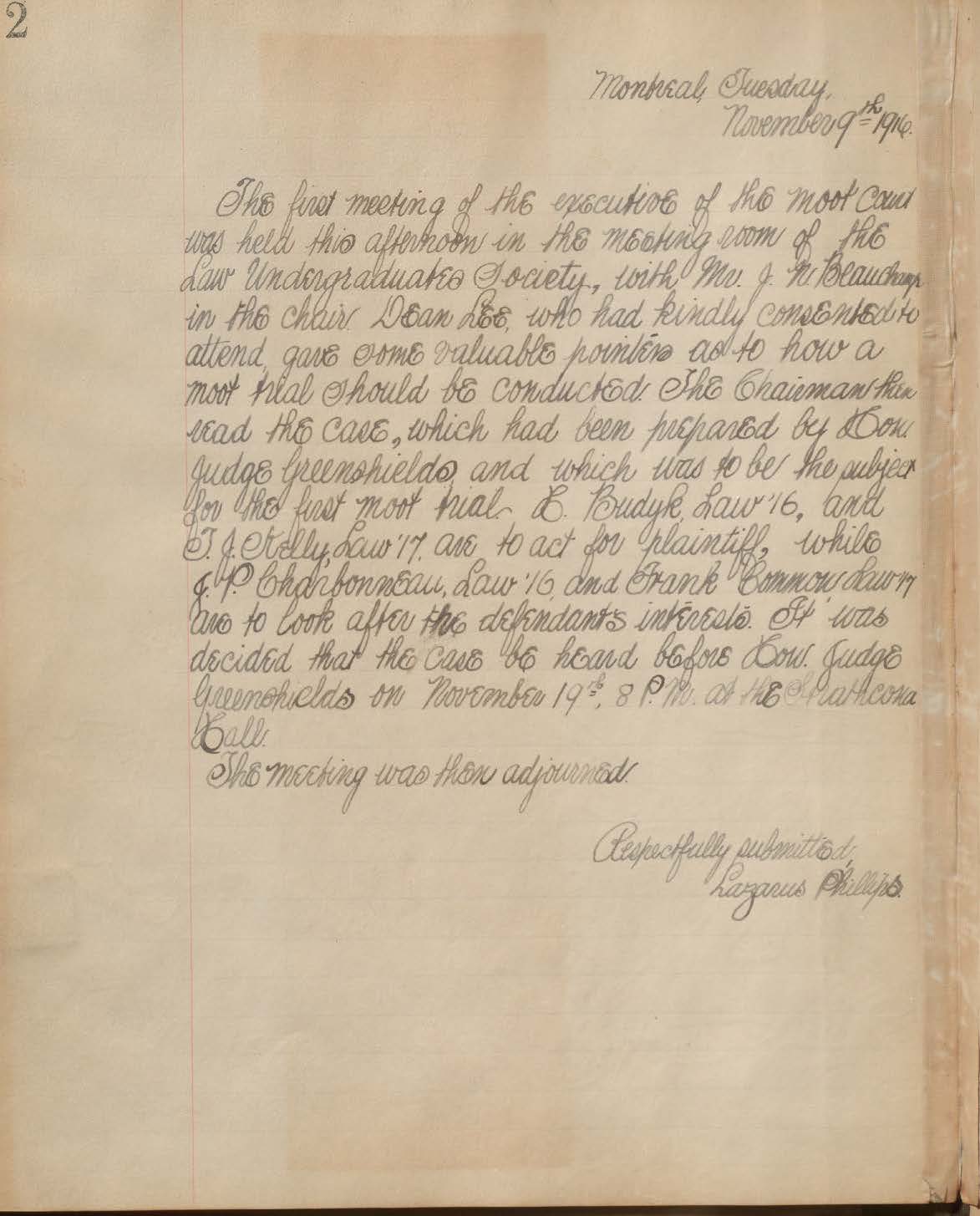This is not a literary text solicited by the co-editors-in-chief for this issue of the Quid, but more of a continuation of the re-emerging theme of my column, an unsolicited advice about the library. Today, I would like to talk to you not about a new “cool” rare book or a useful database that we recently bought but about something totally unglamorous and rather dull: library fines. This choice of topic is not random. From the reference desk, I begin to notice the traces of sleepless nights and mid-term-induced stress at the law students’ faces. [Here, a law student harassed by the looming deadlines and incomprehensible mysteries of the Red Book (sorry, McGill Law Journal) should burst into a fit of sarcastic laughter. “She sees how stressed we are, and she wants to speak about WHAT?”] Yes, I would like to talk to you about library fines. Not out of a malevolent desire to fill your life with a bit more stress and to see how you can handle it, but to help you, to make library fines easy to understand, and thus, easy to avoid.
So, library fines and how to avoid them… There are two main types of library fines that might affect a law student:
1. Recall fines for books – $5 per day.
As McGill students, you can borrow 80 books and renew them for an unlimited number of times. Following this logic, it may seem that you can borrow a book and keep it until you graduate. You can… unless the book is recalled. To make it possible for students and faculty members to share library resources (i.e. books and journals), any borrowed item can be recalled. Anything that you have on loan is subject to immediate recall if needed for reserves, or after 14 days from the date of the original loan if requested by another library user. When something is recalled, you receive a recall notice from the Library at your McGill student e-mail. You must return the item by the new due date or you will be charged $5 per day, with a maximum fine of $100 per item.
How to avoid getting fines for recalled books:
- Check your McGill e-mail every day. When you see a recall notice, bring the book to the library.
- Before you leave Montreal for vacation, holidays, or a visit, return all the books to the library. If you prefer not to do so, find a trustworthy friend/ classmate/ relative whom you can leave keys to your apartment/ room. Keep checking your McGill e-mail when on holidays (some people love working during Christmas vacation, so the books ARE being recalled even then). If a book is recalled, ask your friend to go to your lodgings, get the book, and return it to the library. It may sound horribly insensitive, but the fact of being on vacation “up North”, on Bahamas, etc., is not a sufficient reason to waive your library fines (see below about fine waiving).
2. Reserve fines – $0.02 per minute.
First, what are reserves? Reserve materials are books and other items that because of high demand have short loan period. In the Law Library, the reserves are mostly books that are required readings for a class or some ever-popular titles, such as Canadian guide to uniform legal citations, a.k.a. Red Book. The loan period for all reserve items is 3 hours, after which the fines will kick in and will be calculated 24 hours/day. They can be borrowed overnight if they are borrowed within 3 hours before the closing of Library services. Course reserve items borrowed overnight will be due back one hour after Library services begin the next day. This means, if you borrow a reserve book on Thursday after 3:00 p.m., you can have it until Friday 10 a.m. At the Law Library, the reserve books borrowed on Friday after 3:00 p.m. need only be returned on Sunday before 11 a.m.
How to avoid getting fines for reserve materials:
- Return them on time and to the branch library from which they were borrowed
- When the service desk is open, return reserve materials to the desk
- Avoid returning the reserve books borrowed before 3:00 p.m. after the service desk is closed. The mere fact of putting a book in the reserves return bin does not take it off your account because the return bin is really, you know… just a bin. It is not a fancy technological contraption that will check in books once they hit the bottom. It is a simple wooden box that will keep the books safe until the next day when one of our library assistants opens the service desk and checks the books in. For you, this means that the book stays on your account the whole night and the fines keep accumulating until the morning of the next opening day with a maximum of $100 per item.
What to do if you have already accumulated library fines?
The answer is simple. You will have to pay them. Fines can be waived only in special circumstances, for example, a documented medical situation. The lack of awareness of library policies or failure to receive a reminder email notice is not an acceptable reason for waiving a fine. Unfortunately, if you have $30 or more owing to the library or one overdue recalled item, will block you from borrowing ant library materials and from getting any diplomas and transcripts. To see if you have accumulated any fines, you can sign in your library account at http://catalogue.mcgill.ca/F/?func=login-session



